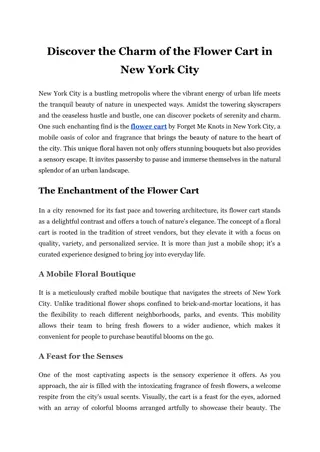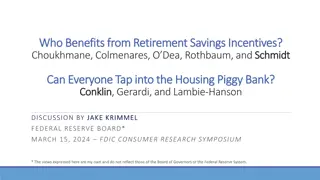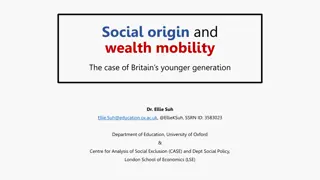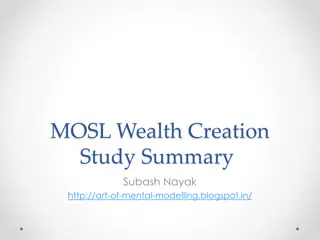Understanding Trust Basics and Types for Wealth Planning in New York City
Explore the fundamentals of trusts, including the roles of grantors, beneficiaries, and trustees, reasons to utilize trusts for wealth planning, and the different types of trusts such as testamentary trusts and irrevocable trusts. Discover how trusts can help with financial decision-making, estate tax reduction, asset growth, and asset protection for family members in Westchester, New York City, Hudson Valley, and Connecticut.
Download Presentation

Please find below an Image/Link to download the presentation.
The content on the website is provided AS IS for your information and personal use only. It may not be sold, licensed, or shared on other websites without obtaining consent from the author. Download presentation by click this link. If you encounter any issues during the download, it is possible that the publisher has removed the file from their server.
E N D
Presentation Transcript
WESTCHESTER TERMINATING IRREVOCABLE TRUSTS, WEALTH PLANNING AND TRUST PLANNING NEW YORK CITY HUDSON VALLEY CONNECTICUT COMMON TRUST STRUCTURES By: Leslie Levin, Esq. llevin@cuddyfeder.com T 914 761 1300 F 914 761 5372 cuddyfeder.com December 9, 2020
Trust Basics What is a Trust? Separate document or provisions in a Will directing Trustees to manage and control assets (money, real estate, business, etc.) for the benefit of one or more persons. Grantor/Settlor - Competent person, 18 years or older, who states his or her wishes with regard to assets administered pursuant to the terms of the Trust Agreement. Beneficiary - Person(s) for whom the Trust is administered. Trustee - Legal owner of the trust property (or trust corpus) who holds the property for the benefit of the beneficiary. The Trustee owes a fiduciary duty to manage and preserve assets for the beneficiaries. 2
Trust Basics Reasons to use a Trust: Remove burden of complex financial decision making from family members Reduce estate taxes in donor's estate Growth of assets outside of both donor's taxable estate and beneficiary's taxable estate Avoid capital gains tax on sale of appreciate securities Provide security for family members Protect family members Keep assets in the family Medicaid Planning Avoid Probate 3
TYPES OF TRUSTS TESTAMENTARY VS. INTER VIVOS
Types of Trusts TESTAMENTARY TRUSTS CREDIT DISCLAIMER TRUST Funded with available applicable exclusion amount (unified credit) which is equal to $10,000,000, indexed for inflation, resulting in an amount equal to $11,580,000 in 2020 under Section 11061 of the Tax Cut and Jobs Act, Pub. L. No. 115-97, which expires on December 31, 2025 absent new legislation. Surviving spouse can disclaim inherited property, real or otherwise (whether by operation of law or through the Will), so that it can be added to a Disclaimer Trust using testator's applicable exclusion amount. Qualified disclaimer rules IRC 2518(b) and in Treas. Reg. 25.2518-2: Irrevocable, In Writing, Within 9 months, No acceptance of interest, Passes without direction by the spouse. Taxed in the Testator's estate because apply unified credit and not taxed in estate of surviving spouse (not includable in the spouse's estate. ). SHELTER TRUST (OR BYPASS TRUST) or 5
Types of Trusts TESTAMENTARY TRUSTS CREDIT DISCLAIMER TRUST Discretionary vs. mandatory income distributions. Discretionary principal distributions for any reason or limited to ascertainable standard (HEMS). Growth of assets outside of both donor's taxable estate and beneficiary's taxable estate. Can be for the benefit of surviving spouse, just issue or sprinkling to spouse and issue. Can include a limited power to withdraw principal, such as a 5/5 power. SHELTER TRUST (OR BYPASS TRUST) or 6
Types of Trusts TESTAMENTARY TRUSTS QUALIFIED TERMINABLE INTEREST PROPERTY TRUST (QTIP TRUST/MARITAL TRUST) A bequest in trust for the surviving spouse, called a qualified terminal interest property ("QTIP") trust, must satisfy the requirements of IRC 2056 in order to qualify for the marital deduction: At a minimum all income is given to the surviving spouse, the spouse is the sole beneficiary, spouse can direct Trustee to invest in income producing assets and provides that the Executor must make a QTIP election. Not taxed in the Testator's estate due to the unlimited marital deduction but they are taxed in estate of surviving spouse (includable in the spouse's estate. ). Keeps assets in the family. If spouse not a US citizen then need a Qualified Domestic Trust ( QDOT ) under IRC 2056A and Treas. Reg. 20.2056A. 7
Types of Trusts TESTAMENTARY TRUSTS QUALIFIED TERMINABLE INTEREST PROPERTY TRUST (QTIP TRUST/MARITAL TRUST) Cannot have discretionary income distributions. Discretionary principal distributions for any reason or limited to ascertainable standard (HEMS). Growth of assets inside spouse s taxable estate. Cannot be sprinkling for spouse and issue. Can include a limited power to withdraw principal, such as a 5/5 power. 8
Types of Trusts TESTAMENTARY TRUSTS DESCENDANT'S TRUST (RESIDUARY TRUST) Discretionary vs. mandatory income distributions. Discretionary principal distributions for any reason or limited to ascertainable standard (HEMS). Can be separate trust for each child or a pot trust sprinkling for issue. Can include principal distributions at various ages or after certain amount of time has passed. Can include substance abuse provision Can include creditor provision. 9
Types of Trusts INTER VIVOS TRUSTS REVOCABLE TRUST (LIVING TRUST) Trust that can be terminated or amended by the Grantor during Grantor's lifetime. Amendments and revocation must be in writing and executed by the person with authority to amend or revoke. Such writing should be acknowledged or witnessed by two witnesses. Written notice of the amendment or revocation must be delivered to at least one Trustee if there is a Trustee other than the Grantor. EPTL 7-1.17. Used as a Will substitute and contains the same provisions as a Will. Trust also contains provisions for how the trust is administered during the lifetime of the Grantor. Pursuant to EPTL 7-1.17, revocable trusts must be in writing, executed and acknowledged by the Grantor. If there are Trustees other than the grantor, then at least one Trustee must also execute the Trust. The execution must either be notarized or witnessed by two witnesses. 10
Types of Trusts INTER VIVOS TRUSTS REVOCABLE TRUST (LIVING TRUST) Reasons to use the Revocable Trust instead of a Will: Avoid probate due to heir issues or possible will contest. Avoid ancillary probate due to residences in multiple jurisdictions. Avoid court imposed accountings on testamentary trust. Ensure smooth transition of management of assets for family post death of Grantor. Assist Grantor with managing assets during lifetime. 11
Types of Trusts INTER VIVOS TRUSTS IRREVOCABLE LIFE INSURANCE TRUST (ILIT) Trust created to own one (1) or more life insurance policies to keep insurance proceeds available immediately upon death while the Grantor's other assets are tied up during the probate process and keeps the insurance out of the Grantor's estate to save estate taxes. Trust can apply for a new policy or can receive an existing policy on the Grantor's life. If the Grantor lives for more than three years after an existing insurance policy is transferred into the trust, the policy proceeds should not be included in the Grantor's estate. The applicable exclusion amount allocated against the cash value of existing policies and a Federal U.S. Gift (and Generation-Skipping Transfer) Tax Return (Form 709) must be filed. 12
Types of Trusts INTER VIVOS TRUSTS IRREVOCABLE LIFE INSURANCE TRUST (ILIT) During the Grantor s lifetime, the annual premium is contributed by the Grantor to the trust and then the Trustees pay the premium. Trust must contain Crummey provision for premium contribution to qualify as an annual exclusion gift ($15,000, indexed for inflation, under IRC 2503(b)): beneficiary has right to withdraw trust assets (Crummey v. Commissioner, (397 F.2d 82 (9th Cir. 1968)). The beneficiary must have notice of right of withdrawal (Crummey Notice) and have a reasonable amount of time to exercise right of withdrawal before it lapses. Rev. Rul. 81-7, 1981-1 C.B. 474 Upon the Grantor's death, the Trustees will collect the insurance proceeds and then administer them for the exclusive benefit of the trust beneficiaries (usually the surviving spouse and then the children) similar to how discussed previously. 13
Types of Trusts INTER VIVOS TRUSTS IRREVOCABLE QUALIFIED PERSONAL RESIDENCE TRUSTS (QPRT) The Grantor lives in the residence during the term of the trust and pays ordinary and recurring expenses such as real estate taxes, insurance and minor repairs. If Grantor survives the term of the trust, the residence (and the appreciation) is removed from the Grantor's estate and there is no step-up in basis on the value of the house upon the death of the Grantor. At the end of the QPRT term, the Grantor can rent the residence from the beneficiaries at fair market rent and there should be a lease. Rental payments will also reduce Grantor s taxable estate and pass more money to children above the annual exclusion. If Grantor does not survive the term of the trust, then date of death value is includable in Grantor s estate. 14
Types of Trusts INTER VIVOS TRUSTS IRREVOCABLE QUALIFIED PERSONAL RESIDENCE TRUSTS (QPRT) The donor transfers a residence to the trust (Treas. Reg. 25.2702- 5) and the value of residence is discounted to account for term of trust and age of grantor. Best when the 7520 rates are high because high 7520 rates result in a lower gift value. Right now it is low (0.6% for December 2020). Best when housing prices are low because a discount is taken on the already depressed value of the home. Donor able to transfer what would normally be a large asset at a fraction of its worth to children. Right now pandemic has lowered property values in many places. Best when capital gains tax will be less than estate tax would be if die owning residence. Best with vacation homes to avoid ancillary probate. 15
Types of Trusts INTER VIVOS TRUSTS IRREVOCABLE QUALIFIED PERSONAL RESIDENCE TRUSTS (QPRT) The Grantor cannot buy back the residence from the beneficiaries (nor can the Grantor's spouse). Real estate is transferred into the QPRT by transferring the real estate with a deed and related transfer documents. Nominee agreement can be used when a co-op board will not approve the transfer. Approved by the IRS (See Private Letter Rulings 9249014, September 4, 1992 and 9433016, May 18, 1994). When making the gift, the donor applies available lifetime unified credit against the gift and files a Form 709 Gift Tax Return. 16
Types of Trusts INTER VIVOS TRUSTS IRREVOCABLE 2503(c) TRUST Used for gifts to children and/or grandchildren to be used for expenses in addition to education expenses or wants greater investment options for the gift, instead of making a gift to the 529 Plan (or in addition to). Can receive annual exclusion gifts or unified credit gifts. Gift tax return must be filed. Reduces Grantor s taxable estate. Can apply Generation Skipping Transfer ( GST ) Tax Exemption against the gift. Upon the beneficiary attaining the age of 21, the beneficiary must be given at least 30 day notice of right to withdraw all trust assets. Trust can continue beyond age 21 if beneficiary does not withdraw assets. Risk that the beneficiary will take the assets at 21 and not leave them in the trust. 17
Types of Trusts INTER VIVOS TRUSTS IRREVOCABLE 2503(c) TRUST Discretionary vs. mandatory income distributions. Discretionary principal distributions for any reason or limited to ascertainable standard (HEMS). Can include principal distributions at various ages or after certain amount of time has passed. Can include substance abuse provision. Can include creditor provision. Can include general power of appointment to avoid application of GST tax exemption (or tax). Can ensure funds available for higher education in case grantor predeceases attendance of college by grandchild. 18
Types of Trusts INTER VIVOS TRUSTS IRREVOCABLE SUPPLEMENTAL NEEDS TRUST (SNT) Either testamentary or inter vivos. Can be used for currently disabled beneficiaries or in case a beneficiary becomes disabled at a future time. Will not render trust beneficiary as ineligible for any government program like Medicaid. Trust assets add to the quality of the beneficiary s life by supplementing government programs rather than substituting for government programs. Federal law can change or beneficiary could move to another state which has programs with different eligibility requirements. Therefore, the trust can provide that the trustees have the power to modify the terms of the trust only to ensure the beneficiary s eligibility for means tested programs. 19
Types of Trusts INTER VIVOS TRUSTS IRREVOCABLE SUPPLEMENTAL NEEDS TRUST (SNT) Trustee can purchase a specialized vehicle for the beneficiary s benefit. Trustee can invest in housing for the beneficiary. Trust can also provide for family visitation, education, investment, insurance, vacation, recreation, restaurant meals, social services, legal services and purchase of goods for the beneficiary such as computers, stereos, televisions, exercise equipment and medical equipment (not covered by Medicaid). . All means tested government benefit programs treat cash as income. Therefore, the beneficiary should never be given cash. Instead, the beneficiary can use a credit card paid for by the trust. Beneficiary cannot use a debit card, as a debit card is deemed to be cash. Three types of Supplemental Needs Trusts: THIRD PARTY TRUST, FIRST PARTY TRUST (SELF SETTLED TRUST) and POOLED TRUST 20
Types of Trusts INTER VIVOS TRUSTS IRREVOCABLE SUPPLEMENTAL NEEDS TRUST (SNT) THIRD PARTY TRUST Assets do not belong to the beneficiary before they are contributed to the trust. No additions to the trust can be made by any person legally responsible for the beneficiary. Upon the death of the beneficiary, the assets can be distributed to whomever the grantors wish. Gifts to the trust do not qualify as annual gifts. Therefore, gift tax return must be filed. The grantor (or anyone else for that matter) can name the trust as a beneficiary under a Will. Can also be the beneficiary of a life insurance policy. Does not require court approval of accounts. 21
Types of Trusts INTER VIVOS TRUSTS IRREVOCABLE SUPPLEMENTAL NEEDS TRUST (SNT) THIRD PARTY TRUST SSI is an income supplement for food and shelter for persons who are blind or disabled. Persons who receive SSI also receive Medicaid. The reverse is not true. To avoid the risk that the disabled beneficiary s SSI income could be reduced by up to one-third by income inkind for housing, the trust uses restrictive language with respect to housing. No payments allowed for food or shelter. Income inkind refers to indirect income such as the parent paying rent on behalf of the disabled child, mortgage, real property taxes, heating, fuel, gas, electricity, water, sewage and garbage. Purchasing (or investing in) a house is not treated as income in kind. Medicaid does not recognize income in kind. Despite the reduction in SSI income, the beneficiary may be better off with the distribution for rent as the SSI income may not cover the rent. A properly drawn trust will allow for trustee discretion in such a situation. 22
Types of Trusts INTER VIVOS TRUSTS IRREVOCABLE SUPPLEMENTAL NEEDS TRUST (SNT) FIRST PARTY TRUST (SELF-SETTLED TRUST) Assets belong to the beneficiary before they are contributed to the trust. Trust must be created by: (i) the individual; (ii) the individual's spouse; (iii) a person, including a court or administrative body, with legal authority to act in place of or on behalf of the individual or the individual's spouse; (iv) a person, including any court or administrative body, acting at the direction or upon the request of the individual or the individual's spouse (42 U.S.C. 1396p(d)(2)(A)(i-iv)). Can be created for disabled individuals if: (i) the trust is established for a disabled individual while he or she was under the age of 65; (ii) the trust is established by a parent, grandparent, legal guardian, or court; and (iii) the trust provides that upon the death of the disabled individual the state will be paid back by the trust for the medical assistance it has provided, to the extent such amounts remain in the trust (42 U.S.C. 1396p(d)(4)(A) and New York Social Services Law 366 subd.2(b)(2)(iii)(A)). 23
Types of Trusts INTER VIVOS TRUSTS IRREVOCABLE SUPPLEMENTAL NEEDS TRUST (SNT) FIRST PARTY TRUST (SELF-SETTLED TRUST) Far more restrictive than a Third Party Trust, including accountings, notices to DSS, and Court approval for execution or funding. No additions to the trust can be made by any person other than the beneficiary. Upon the death of the beneficiary, the assets must be first be used to pay back any funds expended by the state through Medicaid on behalf of the disabled person during the beneficiary s lifetime and not just since the inception of the Trust. Payment of funeral expenses cannot be made until Medicaid is paid back. Therefore, the family may wish to purchase a prepaid burial contract for the beneficiary. 24
Types of Trusts INTER VIVOS TRUSTS IRREVOCABLE SUPPLEMENTAL NEEDS TRUST (SNT) FIRST PARTY TRUST (SELF-SETTLED TRUST) No gift occurs, therefore, no gift tax return must be filed. New York social services district must be notified of the creation/funding of the trust, the death of the beneficiary, substantial distributions if the trust principal exceeds $100,000, transfers for less than fair market value and proof of bonding if the assets exceed $1,000,000. This trust is a grantor trust. Trust assets are to be taxed as though owned by the beneficiary. If there is both a First Party Trust and a Third Party Trust, it would make sense to actually spend the assets in the First Party Trust first so as to reduce the possibility of a payback. 25
Types of Trusts INTER VIVOS TRUSTS IRREVOCABLE SUPPLEMENTAL NEEDS TRUST (SNT) POOLED TRUST If creation of a Supplemental Needs Trust is not an option, a not for profit agency manages the assets of many disabled beneficiaries with separate accounts for each one. For example when no family members available to serve as Trustee or the amount of money that will be contributed to the Supplemental Needs Trusts is small. Legal fees are minimal and the Trust already exists and is compliant with the Medicaid rules. The not for profit pools the beneficiary assets with the assets of other disabled beneficiaries and manages and invests them together. Accounts used to pay for items not covered by Medicaid. No funds can be distributed directly to the beneficiary but they can be distributed on behalf of the beneficiary to third parties and can pay bills directly. 26
Types of Trusts INTER VIVOS TRUSTS IRREVOCABLE SUPPLEMENTAL NEEDS TRUST (SNT) POOLED TRUST Contributions of assets to this Trust do not count as a charitable contribution even though a charity is running the Trust. Often these not for profits offer both a Third Party Trust option and First Party Trust option. There are also pooled trusts designed for excess income for person applying for community based Medicaid (current income level is $875 a month for a senior citizen residing in the community (plus $20 per household)). Beneficiary s account can be used to pay for the beneficiary s living expenses, such as rent, food, utilities and medical supplies not covered by Medicaid. This option is not available for clients receiving institutional care. 27
Types of Trusts INTER VIVOS TRUSTS IRREVOCABLE INCOME ONLY MEDICAID TRUST Client may wish to act proactively in the event that such client may become disabled in the future and require Medicaid. Irrevocable trusts can be used to protect assets. The creation and funding of this Irrevocable Income Only Medicaid Trust will be subject to a five year look back period during which the client would be ineligible for Medicaid for a certain time period. The client needs to keep enough money available during this period to provide for the client s comfort and any potential health care needs. Trust must provide that under no circumstances can the Trustees exercise any discretion to return trust principal to the client. In order for the client to receive any trust principal, the Trustees can make cash distributions to the client s children who in turn can voluntarily gift assets back to the client or pay for the client s care. The client is entitled to income generated by the assets. With regard to a house transferred into the Trust, the income is equivalent to the use and possession of the premises. 28
Types of Trusts INTER VIVOS TRUSTS IRREVOCABLE INCOME ONLY MEDICAID TRUST The trust is a "Grantor Trust" which means that the client will be taxed for income tax purposes as though the client continues to own the assets. Trust contains one or two provisions which would give the client the right to change the final disposition of the trust assets. One is exercisable during the client s lifetime and the other by his last will and testament. These powers give the client the right to change who will ultimately benefit and makes the gift to children uncertain, which renders the gift to them as incomplete. Therefore, no gift tax upon the transfer of assets to the trust. Trust assets remain in the client s taxable estate. The benefit is that any assets ultimately distributed to the children on the second death will be treated as inherited and the children will receive a step-up in basis for all such assets. 29
FUNDING THE TRUSTS TESTAMENTARY VS. INTER VIVOS
Funding the Trusts TESTAMENTARY TRUSTS Apply for employer identification number for the Trust after Executor is appointed. New bank account is created for the Trust in the name of the Trust under the employer identification number assigned to the Trust. The assets are transferred from the Estate s bank account to the Trust account. Partnership interests or share in a corporation or limited liability company are transferred by agreements. Real estate is transferred into a trust by transferring the real estate with a deed and related transfer documents. Sometimes a nominee agreement is used such as when a co-op board will not approve the transfer (see QPRT discussion). A Receipt, Release, Refunding and Indemnification Agreement should be signed by the Trustee upon receipt of the assets. assignment and assumption 31
Funding the Trusts INTER VIVOS TRUSTS Apply for employer identification number for the Trust. Revocable Trusts and some irrevocable Grantor trusts use the tax identification number of the Grantor. New bank account is created for the Trust in the name of the Trust under the employer identification number assigned to the trust. The assets are transferred from Grantor s bank account to the Trust account. Gifting highly appreciated assets makes sense when the donor is in a higher tax bracket than the donee. By doing so, the donee can sell the asset and be taxed in a lower tax bracket than the donor. Conversely, when an asset depreciates, the donor should first sell the asset if the donor can take advantage of the capital loss on his own return. Following the sale, the donor then gifts the sale proceeds to the donee. 32
Funding the Trusts INTER VIVOS TRUSTS Partnership interests or share in a corporation or limited liability company are transferred by agreements. Real estate is transferred into a trust by transferring the real estate with a deed and related transfer documents. Sometimes a nominee agreement is used such as when a co-op board will not approve the transfer (see QPRT discussion). Assets will need appraisal if not marketable securities or cash and can be challenged by the IRS. Therefore, consult a valuation expert knowledgeable about the specific asset to be gifted. When a donor gives away a partial interest in an asset such as real estate, a partnership or a limited liability company, the donor is able to take a discount for lack of marketability and/or control. The donor will need an appraisal of the market discount on top of the appraisal of the underlying asset. assignment and assumption 33
Funding the Trusts INTER VIVOS TRUSTS Assets do not receive a step-up in basis on the date of the gift so donor must weigh benefit of giving away highly appreciated assets during lifetime to reduce potential estate tax against the loss of the step-up in basis the donee would have received had the donor passed the same asset to the donee upon death. Since the gift is valued as of the date of the gift for gift tax purposes, any post-gift increase in the value of the property escapes the donor's estate which will reduce estate tax owed upon the donor's death. Therefore, in deciding which assets to gift, consideration should be given to how much the asset is expected to appreciate in the future in addition to the present value of the gift and its appreciation to date. Gift of undervalued assets allows donor to transfer what would otherwise be highly valued assets at reported values well under expected future worth. The donor will use less of his or her annual exclusion, lifetime gift tax exclusion and GST tax exemption on the gift. 34
Funding the Trusts INTER VIVOS TRUSTS The Form 709 must be filed in April of the year following the date of the gift if more than the annual exclusion is gifted, the gift is split or if a discount was taken when valuing annual exclusion gifts. Each spouse must file Form 709 if splitting gift. On the Form 709, the donor reports the fair market value of the gift on the date of the transfer, the tax basis (as donor) and the identity of the recipient. The donor must attach supplemental documents to support the valuation of the gift, such as financial statements and appraisals. By filing the Form 709, the three year statute of limitations begins to run on the transaction. A copy of the Form 709 should be kept by the attorney since copies will be needed upon the death of the donor and in the event the donor intends to make future gifts. 35
Presentation Statements Disclaimers and Disclosures This presentation is for informational purposes only and is not intended as a substitute for legal, accounting or financial counsel with respect to your individual circumstances. Under IRS regulations we are required to add the following IRS Circular 230 disclosure: To ensure compliance with requirements imposed by the IRS, we inform you that any tax advice contained in this communication is not intended or written to be used, and cannot be used, for the purpose of (i) avoiding any penalties under the Internal Revenue Code or (ii) promoting, marketing or recommending to another party any transaction(s) or tax-related matter(s) addressed herein. This communication may not be forwarded (other than within the recipient to which it has been sent) without our express written consent. 36





























